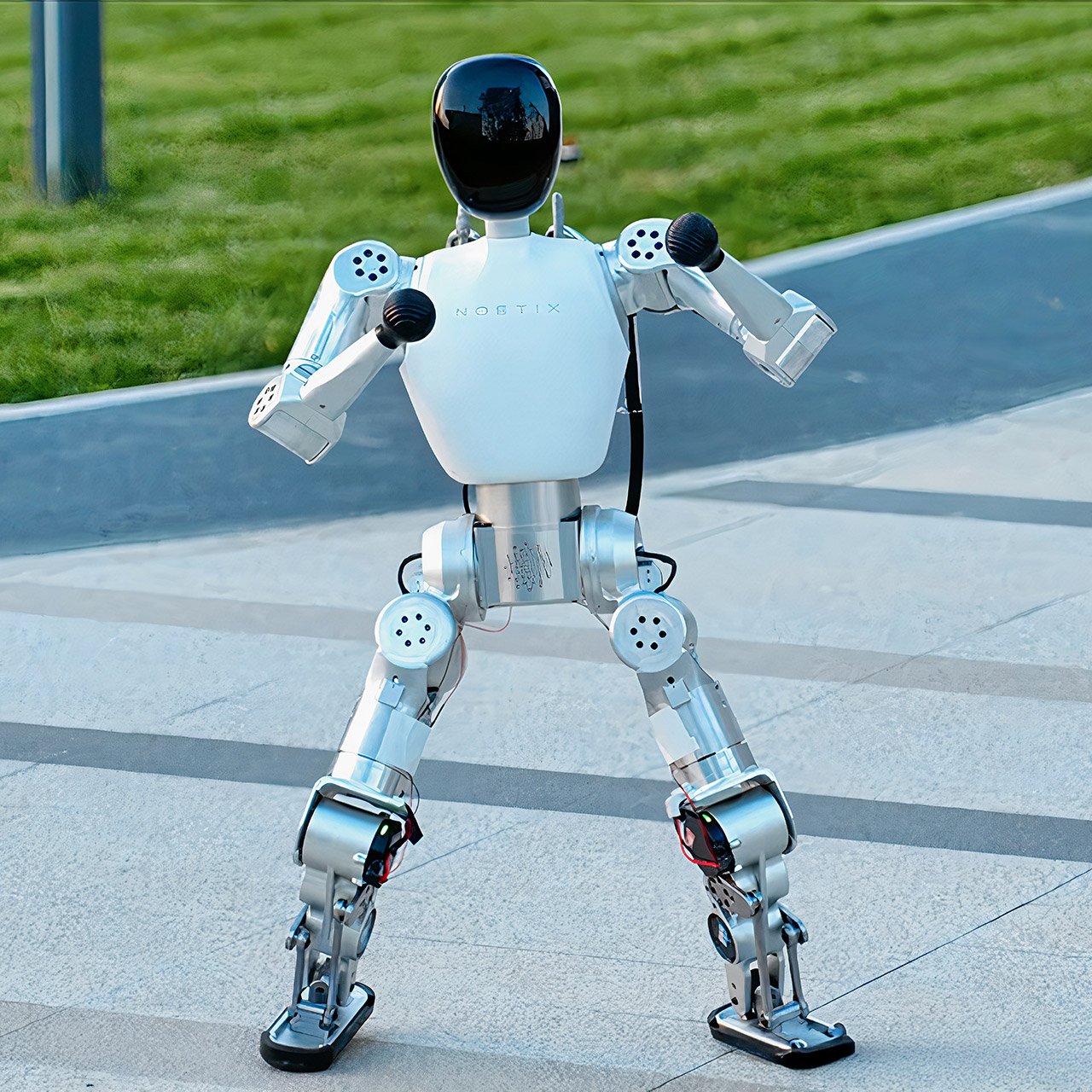Noetix Robotics Unveils Affordable Bumi Humanoid Robot
Noetix Robotics unveils Bumi, a $1,400 humanoid robot, making advanced robotics accessible for education and family use.

Introduction to Noetix Robotics' Bumi
In a groundbreaking move, Chinese startup Noetix Robotics has unveiled the Bumi, a humanoid robot priced at approximately $1,400, marking a significant milestone in making advanced robotics accessible to consumers. This affordable price point positions Bumi as one of the most budget-friendly humanoid robots available, challenging the conventional perception that such technology is reserved for industrial or high-end applications.
The Bumi robot, standing at 94 cm tall and weighing 12 kg, is designed for educational and family use. It is capable of walking on two legs and performing complex movements, including dance routines, thanks to its lightweight composite materials and in-house motion control system. This development is part of Noetix's mission to democratize robotics by making it more accessible to a broader audience, including students, educators, and families.
Background on Noetix Robotics
Noetix Robotics, founded by Jiang Zheyuan in 2023, has quickly gained attention for its innovative approach to robotics. The company's earlier model, the N2 humanoid robot, achieved notable success by finishing second in the world's first human-humanoid half-marathon in Beijing, securing over 2,500 pre-orders. This achievement positioned Noetix among China's fastest-rising robotics startups, highlighting its potential to disrupt the market with affordable yet capable robots.
Key Features of Bumi
Bumi is designed with a focus on educational engagement and family use rather than industrial functionality. Its key features include:
- Affordable Pricing: Priced at around $1,400, Bumi is significantly cheaper than other humanoid robots available in the market, such as the Unitree R1, which costs approximately $5,900.
- Lightweight Design: Bumi uses lightweight composite materials, contributing to its compact size and reduced cost.
- Motion Capabilities: It is capable of stable walking on two legs and performing complex dance movements.
- Educational Tools: Bumi supports drag-and-drop graphical programming for children and beginners, making it a valuable learning companion.
- Battery Life: The robot operates on a 48V battery with a capacity of over 3.5Ah, providing one to two hours of operation per charge.
Industry Impact and Future Prospects
The introduction of Bumi represents a significant shift in the robotics industry, as it challenges the traditional notion that humanoid robots are only for high-end applications or research environments. By offering a consumer-grade humanoid robot at an unprecedented price, Noetix Robotics is poised to transform the market and inspire a new wave of innovation in robotics.
Market Competition and Strategies
The launch of Bumi puts pressure on other companies in the robotics sector to reassess their pricing strategies. Unitree, for example, recently introduced the R1, a full-sized humanoid robot priced at $5,900. While the R1 offers more advanced features like a large multimodal language model, Bumi's affordability makes it an attractive option for those entering the market.
Noetix plans to capitalize on China's peak shopping seasons, such as Double 11 (November 11) and Double 12 (December 12), to drive sales and attract early adopters. This strategic approach aims to leverage consumer enthusiasm during these key events to further popularize Bumi.
Context and Implications
The democratization of robotics through affordable products like Bumi has far-reaching implications for education, consumer technology, and innovation. By making advanced robotics accessible, Noetix is creating opportunities for a broader audience to engage with and learn from these technologies. This could lead to increased interest in STEM fields among students and inspire new generations of engineers and innovators.
Moreover, the entry of Bumi into the consumer market signals a broader trend towards the commercialization of robotics. As technology continues to advance and prices decrease, we can expect to see more household and educational use of humanoid robots, potentially revolutionizing the way we interact with technology.
Conclusion
Noetix Robotics' Bumi represents a pivotal moment in the robotics industry, marking the beginning of a new era in consumer-grade humanoid robots. With its affordable price, educational features, and user-friendly design, Bumi is poised to disrupt traditional market dynamics and inspire innovation across various sectors. As the robotics landscape continues to evolve, companies like Noetix are redefining what is possible in terms of accessibility and affordability, paving the way for a future where advanced robotics becomes an integral part of everyday life.



